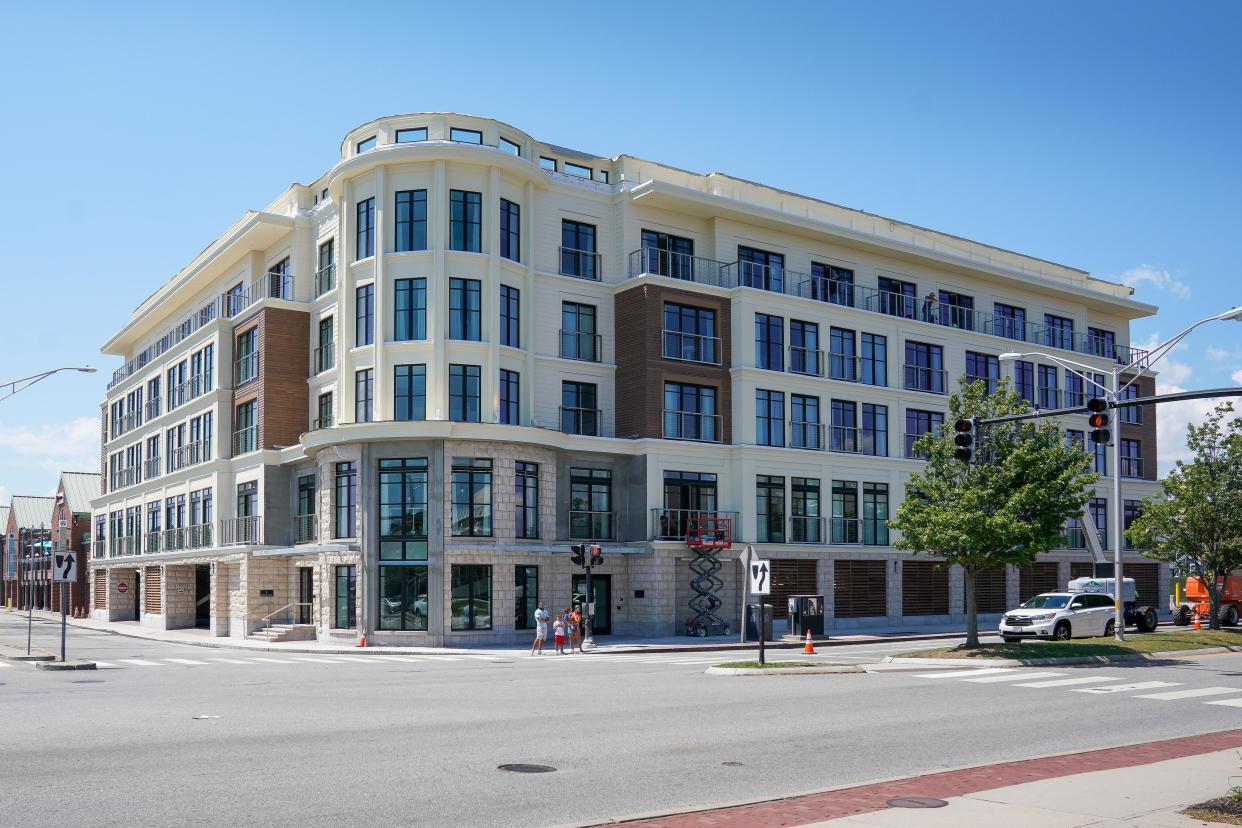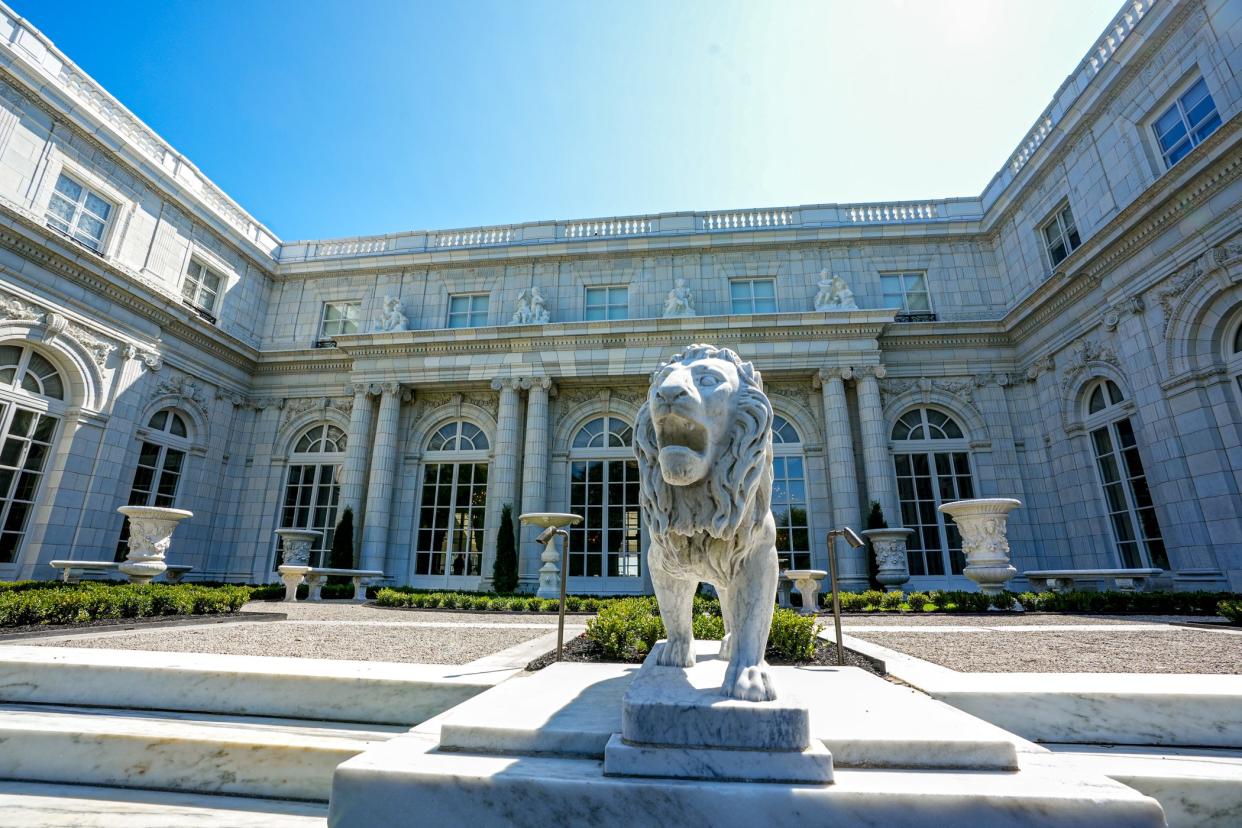In effort to take tax burden off residents Newport councilors target tourists. Here's how
NEWPORT – Hotels and attractions are flooded with visitors in the summer, spending money on food and leisure. However, the city doesn’t see that seasonal economic boom in the city government’s pocketbook.
“I want to tax the tourists and not the locals,” Councilor Mark Aramli said.
The City Council passed two resolutions at its regular meeting on Wednesday aimed at earning more revenue for the city through its tourism industry. One would implement an additional tax on hotels and lodging businesses and another would implement an admissions tax on attractions that sell over 100,000 tickets per year.
Both of these proposed taxes need permission from the Rhode Island General Assembly before the city can begin imposing and collecting them. The resolutions ask Newport’s legislative delegation to draft and file legislation that enables the city to impose these taxes during this year’s legislative session.
The taxes would help pay for the $559.3 million in infrastructure and capital improvements the city administration says need to be taken care of over the next five years. Aramli, who sponsored both resolutions, said the reason behind the city's chronic underfunding of infrastructure is that most of the General Fund is generated through property taxes alone.
“If we are not successful in finding ways to raise revenue from the visitors of this city, the mother doozy of all property taxes is coming to us, and you don’t want that,” Aramli said. “I don’t want that.”
About 83% of the city’s General Fund is supported through local taxes, according to the 2024 adopted budget, which includes residential, business and other local taxes, such as the meals and beverage and hotel taxes the city already receives. However, the latter two taxes only make up about 6.5% of the city’s total revenue. Aramli argued this means any increase in tourism visitation does not contribute significantly to the city’s budget.
Discover Newport Executive Director Evan Smith said the tourism authority’s board of directors has not had a chance to discuss the proposed taxes and likely won’t know the board’s official position until their March meeting. However, in a conversation with The Newport Daily News, he said the city is making nearly $20 million in taxes and fees per year off the tourism industry alone.
“I think it’s really important for local and state government officials to review their entire portfolio of taxes and fees on a regular basis to ensure they are properly positioned to find the right balance between revenue generation and competitive position,” Smith said in a statement. “Acknowledging and understanding the yield of current taxes is an important starting point in the discussion of what potential changes could or should be made.”
Lodging Tax
The current tax on the sale of hotel rooms is technically two statewide taxes, a 1% local tax of which the city retains the entirety and a 5% state tax of which the city receives 25%. The rest of the funds are distributed to the city’s tourism district Discover Newport, the RI Commerce Corporation and the Providence Warwick Convention & Visitors Bureau.

Aramli’s original resolution asked the city’s General Assembly delegation to draft legislation that would allow the city to collect an additional 2.5% tax on hotel room sales. This fee would be imposed on the hotel and lodging owners, not the guests, and would provide the city an additional $3.5 million in revenue, according to Aramli’s resolution.
He argued the city ranks in the bottom 17th percentile for lodging taxes compared to the top 150 cities nationwide, citing numbers from an HVS Hotel Intelligence report. The new tax would place Newport at the 74th percentile. However, according to a 2022 American Lodging and Hotel Association Tax Study, the percent Newport lodging businesses pay in taxes, including sales tax, is comparable to Miami, Florida; Myrtle Beach, South Carolina; Charleston, West Virginia; Cheyenne, Wyoming, and others.
The resolution passed with a 6-1 vote, with Councilor David Carlin in opposition.
Admissions Tax
While Aramli’s fellow councilors were mostly on board with the lodging tax, some were more concerned about the admissions tax, as the 100,000 ticket sales threshold might feel targeted solely at The Preservation Society of Newport County, the owner and operator of several of the city’s most iconic and popular mansions, including The Breakers, Marble House and Rosecliff. In fact, neither Aramli nor the other councilors, nor Smith could name another organization with over 100,000 in ticket sales.

The resolution passed in a 4-3 vote, with Councilors Lynn Underwood Ceglie, David Carlin and Jeanne Marie Napolitano against.
The Preservation Society of Newport declined to comment.
Smith said the resolution prompted him to look into whether other cities have admissions taxes as he was not familiar with any. It is possible, he said, that Newport could be the only one with an admissions tax or the only one without an admissions tax.
Additionally, Smith noted that while Newport may not be at risk of overtaxing its visitors and driving them away from the city, he raised concerns that the tourism industry could be bearing an inequitable burden compared to other industries in the city.
“The tourism industry can’t solve all problems,” Smith said. “We weren’t born to solve every problem. Tourism’s not going to solve every challenge in every community.”
This article originally appeared on Newport Daily News: Newport considers taxes on hotels, attraction admissions